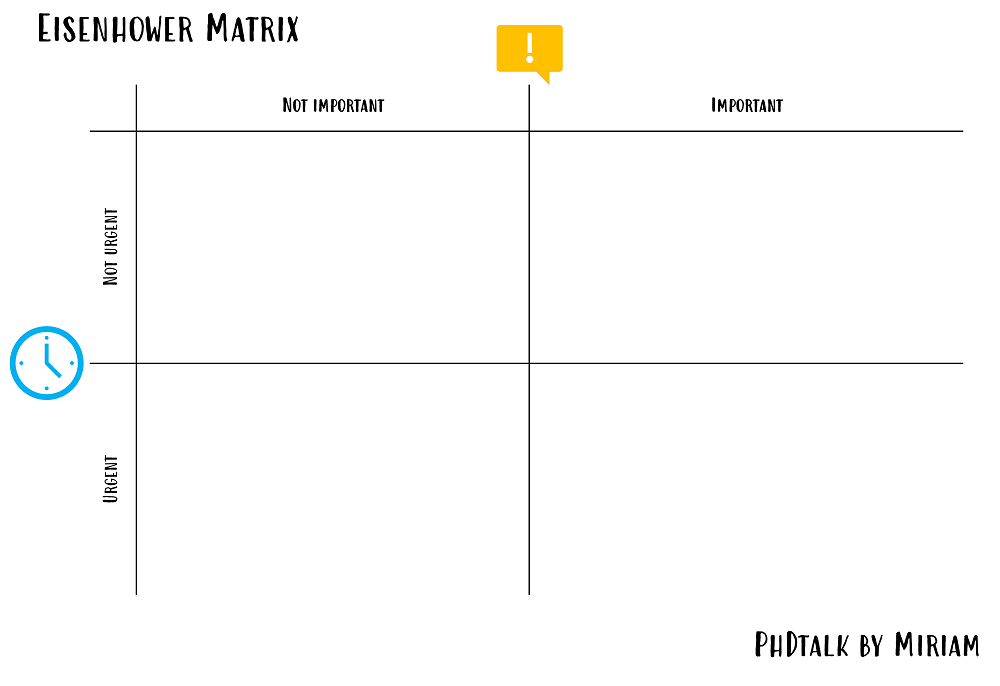First things first. So far so good, but how?!
I often asked myself: Why do I never feel like getting things done in time or Why do i never feel like getting enough things done?
What helps me not having to ask myself such questions anymore – or at least a lot less – is using prioritisation techniques such as the Eisenhower Matrix.
The Eisenhower Matrix helps us to categorise tasks depending on their urgency and importance.

IMPORTANT means important to you – not necessarily anybody else and URGENT, too, isn’t always a clearly defined timeframe, it can also depend on your comfortzone, for example: How close to a deadline do you start to feel nervous?
Over time you will get a better feeling for what is really important to you and what is really urgent right now.
Often tasks that are urgent and important will get done anyways – the question is how?
Not so urgent but still important ones are often overlooked and that’s a shame because they often describe our long term goals and desires, like learning something new or creating something big. Scheduling time for such tasks into your weekly plans can have will great impacts on your achievements and energy in the long run 🙂
For tasks that not important to you, it can make sense to collect and batch them and to do many of them one after the other instead of scattering them over your day.
Here you can find a pdf with a description of the single quadrants and an empty framework you can print and then try : ) If you have, use recycling paper 🙂 🙂
Since managing e-mails plays a big role in this, I would like to refer you to episode #4, where I spoke about how you can manage e-mails more effectively and spend less time on them.
Subscribe to PhDtalk for free on spotify or Apple Podcast or listen to the episode right here:
You have a question about the podcast in general or this episode in particular? Please feel free to write a PM or comment below the post of this episode on LinkedIn!